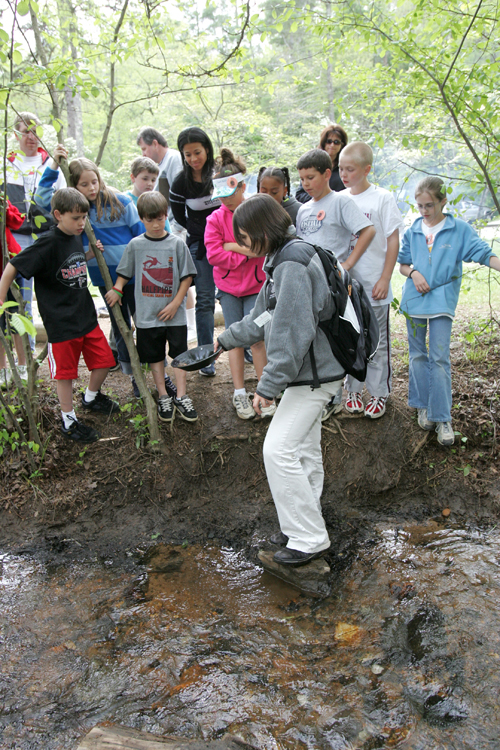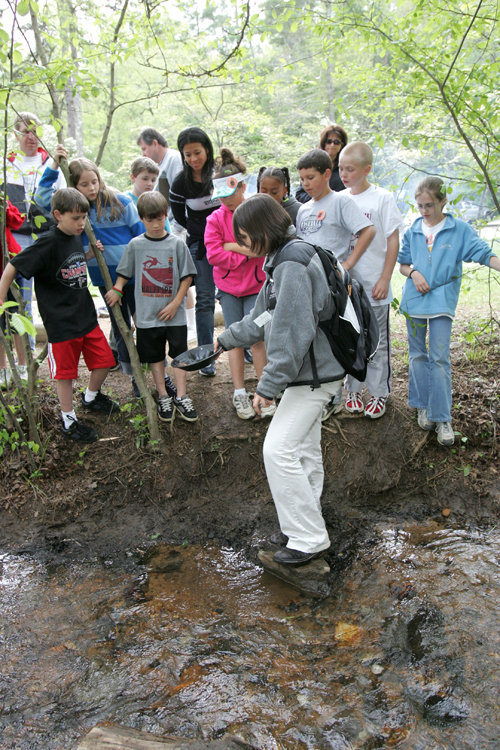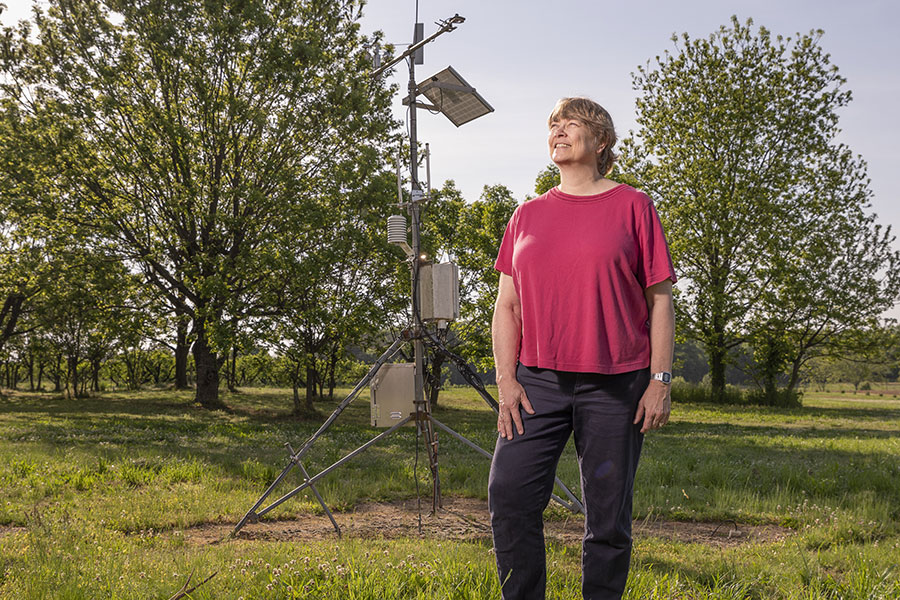Whether a classroom is virtual, at home or in a brick-and-mortar school, learning can happen anywhere. The Georgia 4-H Environmental Education Program uses nature as a classroom for students across the Southeast.
Offered at all five 4-H centers across Georgia, this research-based education program is taught in the unique ecosystems of Georgia, from the mountains, through the piedmont and to the sea. Wahsega 4-H Center is in the north Georgia mountains of Dahlonega, Fortson 4-H Center is just south of Atlanta in Hampton, Rock Eagle 4-H Center is in the heartland of Georgia in Eatonton, Burton 4-H Center is just outside Savannah on Tybee Island, and Jekyll Island 4-H Center is on the barrier island of Georgia known as “Georgia’s Jewel.”
Taking education outside
Whether they are enrolled in public, private, virtual or home-based schools, students can take advantage of these experiential learning opportunities from September through May of each school year. The EE program serves kindergarten through 12th grade youths, as well as the teachers, leaders and chaperones that attend. Experiences range in length from two hours to several days.
Each 4-H center has lodging and a full-service dining hall. A typical three-day/two-night field study includes seven meals, two nights of lodging and approximately 16 hours of education.
EE programs are not typical educational experiences. At one coastal site, students learn marsh ecology by walking into the marsh to feel detritus, hold fiddler crabs and see rare birds like the wood stork or the roseate spoonbill. In the piedmont, students experience life as a pioneer by using pioneer tools, playing pioneer games and visiting historic sites. In the mountains, a stream ecology lesson takes students into a cool mountain stream to sample and identify macro-invertebrates.
Each center provides a different experience
While each 4-H center provides programming that is unique to its ecosystem, each program shares a common standard for excellence maintaining correlations to the Georgia Performance Standards. The EE program brings school concepts to life and connects students to nature by using nature as a classroom without walls. While the programs emphasize the sciences, lessons also complement history/social studies, language arts and mathematics and promote team building, skill development, communication and relationship building.
In its rich 31-year history, the EE program has served close to 900,000 youths. The program reaches a large number of students but the student-to-instructor ratios are kept low, typically at 15:1 or even less. These small learning groups allow students to connect and interact with adults in ways that are not offered in typical school settings.
Georgia 4-H EE also recognizes that every child has a unique learning style and that by presenting new information and concepts in a variety of ways (including visual, auditory and kinesthetic formats) students are more likely to succeed and benefit from the programming.
For more information on Georgia 4-H EE, see the website www.georgia4h.org/ee or contact Melanie Biersmith, Georgia 4-H specialist, at (706) 484-2800.




